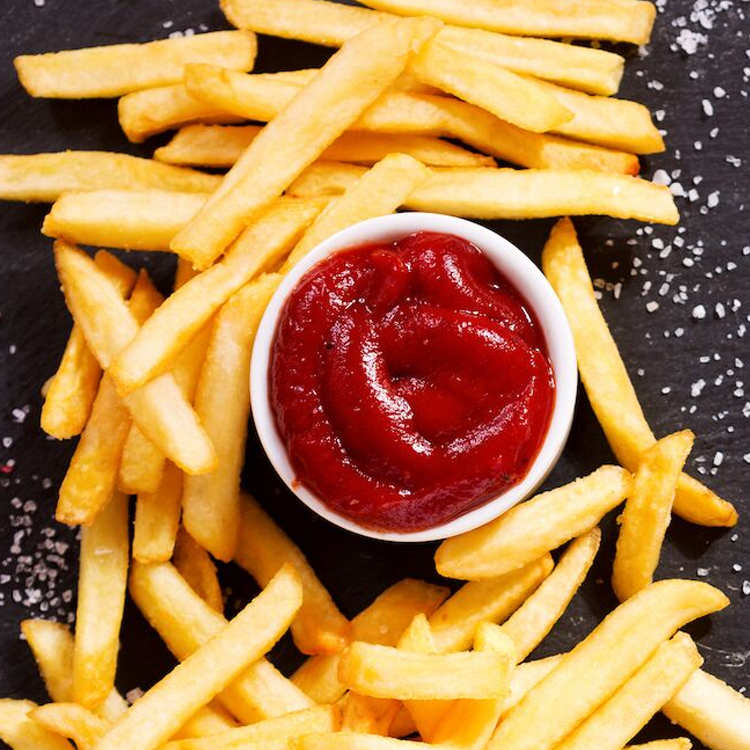
Maximize Your Energy With the Best Food for Mitochondria
Mitochondria are cell organelles present in most of our body cells. They are responsible for various physiological processes related to body vitality and physical performance. As demonstrated in various studies, our way of life impacts their health.
Today, we are dealing with the best ways to improve mitochondrial health, highlighting the best foods for mitochondria. Stay tuned.
Role of Mitochondria in Human Cells
Mitochondria are known as the “powerhouses of the cell.” They generate adenosine triphosphate (ATP), the primary energy source for cellular activities. This process, known as oxidative phosphorylation, involves transferring electrons from nutrients to oxygen, creating a proton gradient that drives ATP synthesis. Besides energy production, mitochondria are crucial for maintaining cellular health and functionality.
One important function of mitochondria is to manage oxidative stress, a condition where there’s an imbalance between the production of reactive oxygen species (ROS) and the body’s ability to detoxify them. Mitochondria regulate ROS production and prevent oxidative damage to cells.
They are also essential agents for lipid peroxidation, a process that can harm cell membranes and contribute to various diseases. Mitochondria are also necessary for maintaining iron homeostasis, which keeps cells functioning properly and prevents oxidative damage. Besides, these cell powerhouses are involved in neurotransmitter signaling, which is required for effective nerve cell communication.
Mitochondrial Damage
Mitochondrial damage refers to the deterioration or dysfunction of mitochondria, which can lead to impaired energy production and cellular function. As mitochondria age or are exposed to various stressors (e.g., environmental toxins or genetic mutations), their ability to produce ATP declines. This decline in mitochondrial function is associated with aging and certain diseases, including neurodegenerative disorders, metabolic syndromes, and cardiovascular diseases.
Signs of mitochondrial damage may vary depending on the tissues or organs affected. Common signs include fatigue, muscle weakness, and exercise intolerance, as these symptoms reflect reduced energy production. Other signs usually include neurological symptoms such as cognitive decline, movement disorders, and neuropathies. Mitochondrial damage increases oxidative stress, which may result in cell damage and different kinds of inflammation.
The Best Food for Mitochondria
Preserving mitochondrial health through a healthy diet, regular exercise, and avoiding environmental toxins is essential for preventing mitochondrial damage and associated health issues. Among all the strategies for improving their health, mitochondrial foods take the lead. The best food for mitochondria contains B vitamins, coenzyme Q10, polyphenols, alpha-lipoic-acid, proanthocyanidins, and other essential vitamins and minerals.
To make this perfectly clear, let us explain these valuable nutrients, as well as the dietary sources that contain them:
Foods That Contain B Vitamins
B group vitamins are essential for energy metabolism and mitochondrial function. They serve as cofactors in enzymatic reactions that produce ATP within mitochondria. These vitamins help convert food into energy and maintain mitochondrial DNA integrity and function.
Overview of valuable food sources, according to B vitamin type:
- B1 (thiamine) – Cereals, pork, nuts, and seeds
- B2 (riboflavin) – Dairy products, lean meats, and green leafy vegetables
- B3 (niacin) – Meat, poultry, fish, and whole grains
- B5 (pantothenic acid) – Meat, poultry, fish, cereals, and legumes
- B6 (pyridoxine) – Meat, fish, poultry, nuts, and bananas
- B7 (biotin) – Egg yolks, nuts, seeds, and sweet potatoes
- B9 (folate) – Leafy greens, legumes, citrus fruits
- B12 (cobalamin) – Animal products such as meat, poultry, fish, eggs, and dairy
Coenzyme Q10 Foods
Coenzyme Q10 takes part in the electron transport chain, which is a key process in ATP production within mitochondria. CoQ10 acts as an electron carrier, helping to transfer electrons from complexes I and II to complex III in the electron transport chain, which results in ATP synthesis. As a potent antioxidant, it protects mitochondria from oxidative damage, which is important for preserving their function and overall cellular health.
Food sources of CoQ10 include:
- Meat – Particularly organic meats like liver, beef, pork, and chicken
- Fish – Especially sardines, mackerel, and salmon
- Vegetables – Spinach, broccoli, and cauliflower
- Fruits – Oranges and strawberries
- Legumes – Soybeans and peanuts
- Sesame seeds and pistachios
Alpha-Lipoic Acid (ALA)
Alpha-lipoic acid is a powerful antioxidant that boosts mitochondrial function. It helps regenerate other antioxidants, such as vitamins C and E, which protect mitochondria from oxidative damage. Additionally, ALA enhances glucose uptake and ATP production in mitochondria, contributing to overall cellular energy production and metabolism. Alpha-lipoic acid also has strong anti-inflammatory properties, which help preserve mitochondrial function.
Foods that contain alpha-lipoic acid:
- Leafy greens, such as spinach and broccoli
- Red meat, particularly organ meats like liver
- Brewer’s yeast – a rich source of ALA
- Tomatoes
- Potatoes and carrots
Polyphenols
Polyphenols have remarkable antioxidant and anti-inflammatory properties that protect mitochondria from oxidative damage. Oxidative stress can impair mitochondrial function and contribute to various diseases, so consuming foods rich in polyphenols can support mitochondrial health. Polyphenols have also been shown to promote mitochondrial biogenesis, the process of formatting new mitochondria. Foods that contain polyphenols are certainly the healthiest food for mitochondria.
Here’s a list of excellent sources of polyphenols, along with the specific polyphenols they contain:
- Berries (blueberries, strawberries, raspberries) – Contain various polyphenols such as resveratrol, anthocyanins, flavonols, and ellagitannins
- Dark chocolate – Rich in flavonoids, particularly catechins and procyanidins
- Green tea – Contains catechins, particularly epigallocatechin gallate (EGCG)
- Olive oil – Extra virgin olive oil contains oleuropein, hydroxytyrosol, and tyrosol
- Nuts (walnuts, pecans, hazelnuts) – Contain ellagic acid, catechins, and proanthocyanidins
- Legumes (lentils, chickpeas, beans) – Rich in flavonoids, particularly catechins and quercetin
- Spices (cinnamon, turmeric, cloves) – Cinnamon contains cinnamaldehyde, turmeric contains curcumin, and cloves contain eugenol, which are all good sources of polyphenols.
Vitamin C
Vitamin C is a strong antioxidant that protects mitochondria from oxidative damage. Mitochondria are susceptible to oxidative stress due to their role in energy production, so consuming foods rich in vitamin C can help preserve their function. Vitamin C is also involved in the synthesis of carnitine, which is crucial for mitochondrial energy metabolism. Apart from this, vitamin C is important for the regeneration of other antioxidants, such as vitamin E, which also enhances mitochondrial health.
Valuable food sources of vitamin C include:
- Citrus fruits such as oranges, lemons, and grapefruits
- Berries: strawberries, raspberries, and blueberries
- Kiwi fruit – especially rich source of vitamin C
- Leafy greens such as spinach, kale, and Swiss chard
- Bell peppers
- Broccoli
- Tomatoes
Frequently Asked Questions
What foods are bad for mitochondria?
Foods high in sugar and unhealthy fats, such as processed foods, sugary beverages, and fried foods, are generally bad for mitochondria. High sugar intake can lead to increased oxidative stress and inflammation, which damage mitochondria and impair their function. Similarly, unhealthy fats, especially trans fats, contribute to oxidative stress. Excessive alcohol consumption is also detrimental to mitochondria, as alcohol metabolism produces toxic byproducts that may result in mitochondrial damage.
What destroys mitochondria?
The following factors contribute to the destruction or dysfunction of mitochondria:
- Inflammation, which is linked to chronic diseases;
- Genetic mutations that affect mitochondrial proteins, or mtDNA;
- Environmental factors – exposure to toxins, pollutants, and certain drugs;
- Oxidative stress – damages mitochondrial DNA and proteins and leads to mitochondrial dysfunction.
Is sunlight good for mitochondria?
Sunlight is necessary for the production of vitamin D, which regulates mitochondrial function and overall cellular health. Vitamin D receptors are found in mitochondria, indicating a direct relationship between vitamin D and mitochondrial activity. Sunlight exposure can also help regulate the body’s circadian rhythm, which is important for mitochondrial health. However, excessive exposure to UV radiation can increase oxidative stress and DNA damage and potentially harm mitochondria. Therefore, moderate sunlight exposure, especially in the early morning or late afternoon when UV radiation is low, is the best ally for mitochondrial health.


